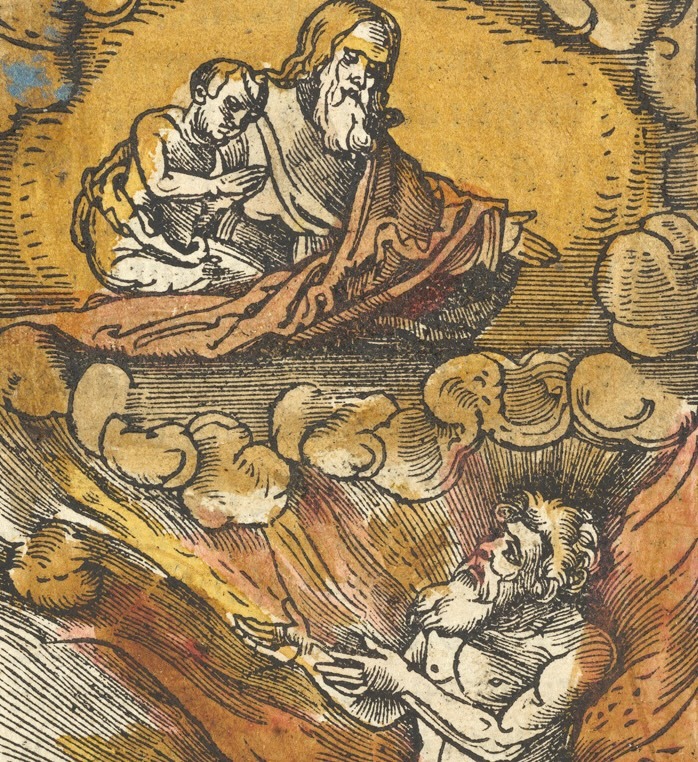
Luke 16:19-31
Pentecost 16, September 28, 2025
Holy Trinity Cathedral
“Reversing Expectations”
Between the cathedral and the chapter house at Lincoln in England, there is a rectangle of green lawn. It is bordered by covered walkways on all four sides. The setting is called a cloister. On ordinary days you can stroll around the quadrangle. But when Lincoln Cathedral is mounting one of its medieval mystery plays, the area is transformed into a giant set, upon which the sacred stories of scripture have been acted out for hundreds of years to entertain and teach.
When I was there on a still summer evening, there were two stages set at opposite ends. All of the action took place back and forth between the two. We began with the act of creation before moving into the gospel story of the birth, death, and resurrection of Jesus Christ. At midnight, the bells in the clock tower tolled as Jesus suffered and died. Then came the resurrection with glorious music. All of the actors danced upon the green in the finale. It was then that the curtains on each stage were drawn back. One was lit with red, representing hell. The other was a blaze of light as the heavenly kingdom. The cast scattered towards us, the audience, who were ranged around the perimeter of the cloister. Angels and demons, disciples and opponents. One by one, they grabbed our hands, and dragged us into the dance. Then, everyone present was split in two directions. Some were carried up to heaven. And I, with others, was pushed down to hell. At the time I remember panicking: “this isn’t how it’s supposed to end! Why didn’t someone warn me?”
The crowd listening to Jesus had various ideas about what happened when this life ended. Traditional Jews believed in a concept called Sheol. Sometimes translated as the grave, or “the place of the dead”, it was thought to be where everyone who died ended up. Described as dark, dusty, and dreary. No reward or punishment. No resurrection or afterlife. This was the view of the Sadducees (as one comic notes, that’s why they were sad, you see). Other people in the crowd were influenced by the Greco-Roman concept of a kingdom of death. The Greek Hades was envisioned as an underworld with just punishments for one’s actions during life. But the idea of resurrection was gaining appeal. What if there was something more enjoyable beyond this mortal world? What would that look like, and who would benefit? And what was Jesus talking about?
Jesus tells a parable to reverse expectations. Good things don’t always come to good people. And just because something bad happens doesn’t mean that person is sinful. You can’t tell who is good and who is bad by what people receive in this life. But actions do have consequences now and beyond the grave. The rich man who ignores the needs of the poor in this life finds that he has no help once he dies. Lazarus, whose name means “God helps”, doesn’t get much joy on earth, but is rewarded for his suffering when he enters into the sweet hereafter. This is a wonderful morality play in itself, but what is truly a teachable moment for Jesus’ listeners is how the formerly rich man continues to miss the point.
During his life, the unnamed wealthy person has enjoyed a luxurious existence. Maybe he shared his food and festivities with his friends, but he ignored the needs of the people who sat begging outside his gate. Make no mistake: he knew Lazarus was there, even knew him by name. But he did nothing to change the poverty and pain of his situation.
Once he gets a taste of torment in Hades, he cries out for mercy to Father Abraham. Not because of what he has done has hurt others, but because he has lost his privilege and comfort. Instead of repenting and asking forgiveness, he still wants his own needs met. Abraham explains that Lazarus is not his servant to fetch water to soothe him. Nor can he be a messenger to warn the rich man’s living family about the dangers of selfish wealth. All those times when the rich man has failed to open the gate of his heart to those in need have formed into a spiritual chasm which cannot be bridged. He has not understood all the law and the prophets, that teach us to love God and therefore love our neighbour. If his brothers are anything like him, they are not going to be convinced even if someone rises from the dead.
When Jesus rose on the third day after he was crucified, not everyone believed the news. Even his disciples had a hard time accepting the testimony of the women who had witnessed the resurrection of the dead. Only when they encountered Christ coming among them did they receive his Spirit of peace and forgiveness. They were transformed from frightened followers to apostles- ready to act out the salvation of God. It wasn’t because they were holy or deserved mercy. But they were ready to practice living into the resurrection life. It’s like the difference between watching a play and being drawn into the action as a participant.
Whatever life has in store for us, good or evil, we have choices about how to respond to the others around us. We can barricade ourselves inside the gates of our making. Or we can, in this brief life, work to reconcile and bridge the divides that wealth, privilege, and circumstance set up between people. Jesus reminds us that it is better to learn and act now, rather than wait until it is too late. Amen.

